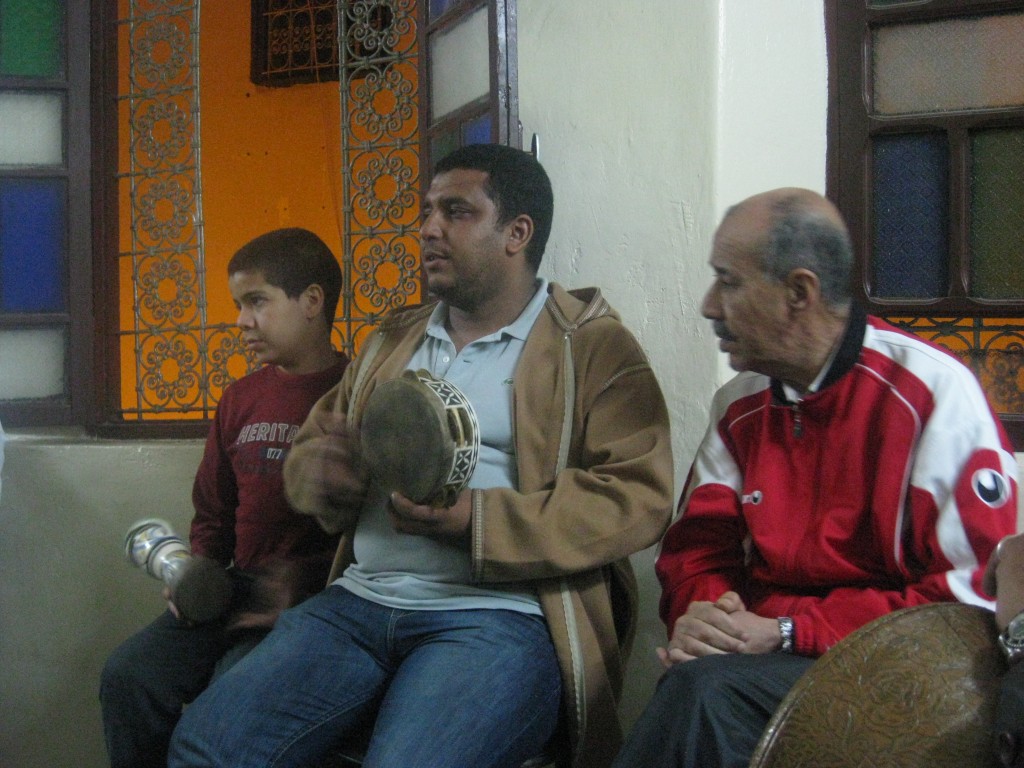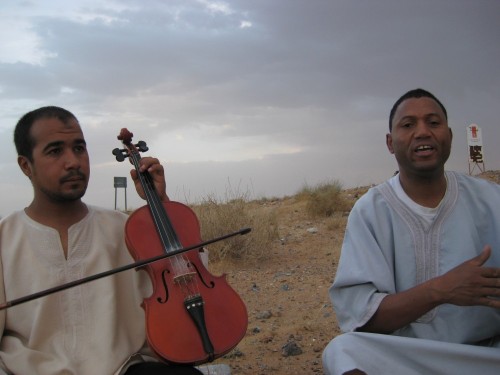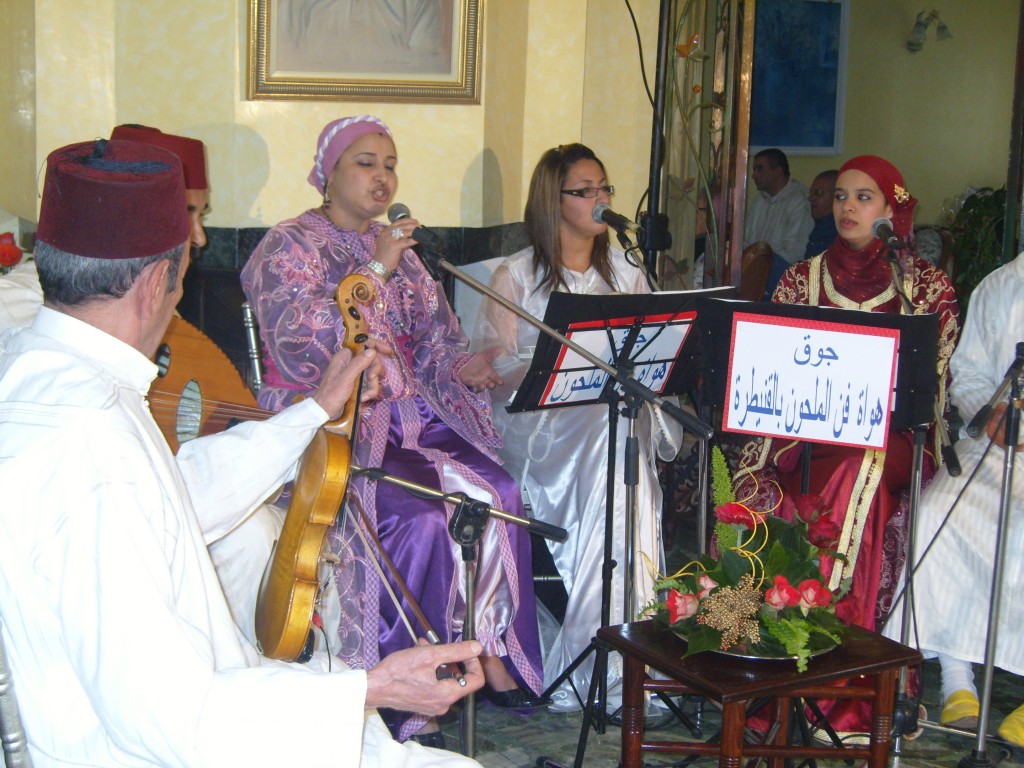Malhun (French melhoun, Arabic Malḥūn / ملحون) is a North African genre of sung poetry composed in a vernacular. It also exists in Western Algeria, but historians trace its origins to Sijlmassa in Morocco, and it continues to play a significant role in Moroccan Arabic culture and in the social construction of the nation of Morocco.
This project consists of several publications:
- Translated excerpts in ArabLit Quarterly. Public reading and discussion during launch event for Winter 2021 issue here.
- Article for Encyclopaedia of Islam THREE. Available in print and online.
- Anthology of Malhun Poetry: The first English-language volume of Moroccan Malhun Poetry [In Progress. See announcement here.]
- Article: “Trending Classic: The Cultural Register of Moroccan Malhun Poetry” in The Journal of North African Studies (March 2016). Available online. This article summarizes the argument of my dissertation (UT Austin 2013). Abstract: This article demonstrates how the heteroglossia of malḥūn performances affects Moroccans as they negotiate identities and re-imagine Moroccan society. Performers’ poetic devices and interpretations of the genre facilitate a process of representing and “voicing” social groups within contemporary Moroccan public discourse. I apply Bakhtinian dialogic analysis to address voices of stability that reinforce social structures of authority (“centripetal”) and voices of diversification (“centrifugal”) that re-envision diversity in Moroccan society. Artistic innovations, such as theatrical productions of a narrative malḥūn poem, make space for rethinking Moroccan identity. Malḥūn emerges from this study as a literary and cultural form that functions as a cultural register to inform public discourses regarding the nature of Moroccan identity.
- Dissertation: Available online here (UT Austin 2013). Moroccan linguist Mohamed Elmedlaoui posted a French summary and announcement of the dissertation here. My methods include fieldwork and contemporary theory in order to avoid pitfalls of essentialism and the focus on history that informed earlier studies. This study relies on three types of primary sources: printed collections, oral performances, and interviews. Oral and written examples of malḥūn range across the past five hundred years. However, this study places priority on the various actors involved in malḥūn today: poets, singers, musicians, editors, scholars, politicians and fans.
Here are some photos and recordings that complement the dissertation, for those interested:
- 1-hour presentation at a local malhun association in Meknes (2014, in Moroccan Arabic)




Zawegna f-hmak / I’m Beholden to You
Vintage black and white video of Fatima Zohra Ismaili singing
Video of music conservatory students singing
Any public use of non-YouTube materials should be preceded by notifying Melanie Magidow
For an accessible, single-volume Arabic / French anthology, see Fouad Guessous, Anthologie de la poésie du Melhoun marocain (Vol. 1 Casablanca: Publiday, 2008). Vol. 2 available from here (Paris: Editions l’Harmattan, 2015), with interview (in French) with the author.
